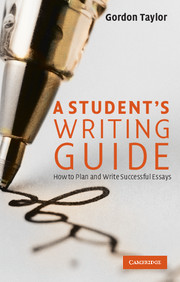1 - Writing book reviews
Published online by Cambridge University Press: 28 January 2010
Summary
An essay, as we have seen, demands that you analyse arguments and evidence in order to decide on your best answer to the question raised by the topic. Fundamental to this answer is your argument and your evaluation. A book review requires you to perform the same tasks. Just as you begin your work on an essay by asking of your topic ‘What is this question driving at?’, so you begin work on a book review by asking ‘What is this book driving at?’ In everything we have had to say about reading we have stressed the importance of asking yourself constantly ‘What is this author doing?’ This is the first question a book reviewer will ask. The reviewer will also ask two other questions: ‘How well was it done?’ and ‘Was it worth doing?’ Answering these questions involves assessing the book's contribution to the field of study.
If you feel diffident about your ability to give an authoritative assessment of the book's contribution to public knowledge in the subject, you nevertheless have a significant alternative open to you. This is to evaluate the author's contribution to your own understanding of the subject within the context of the other works you have read. Notice this last condition. You will not be able to assess any single work if you do not try to integrate it into what you already know.
- Type
- Chapter
- Information
- A Student's Writing GuideHow to Plan and Write Successful Essays, pp. 240 - 242Publisher: Cambridge University PressPrint publication year: 2009



